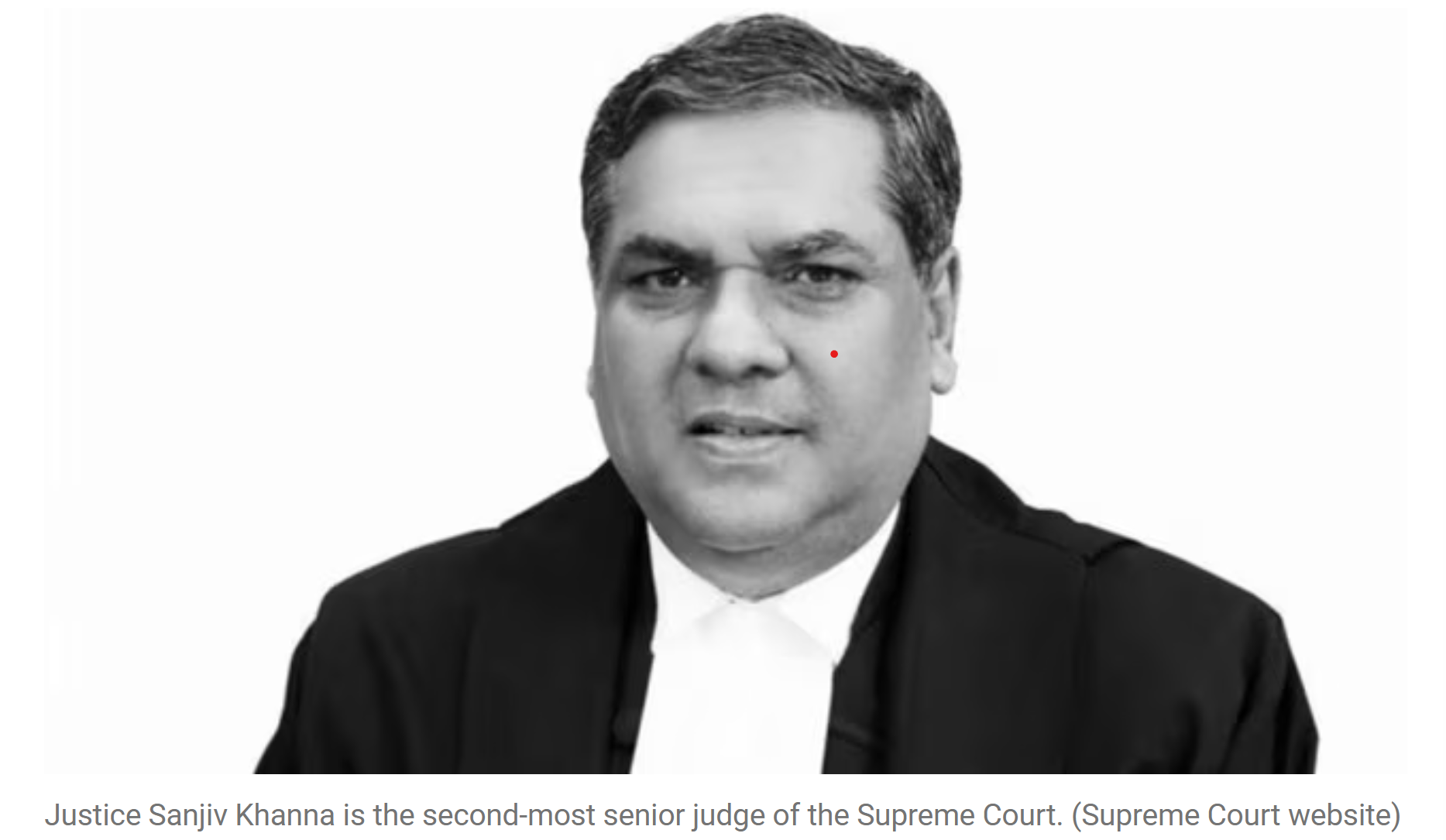Justice Sanjiv Khanna Appointed as Next Chief Justice of India

- 18 Oct 2024
In News:
Justice Sanjiv Khanna Appointed as Next Chief Justice of India, Will Assume Office on November 11
- Appointment:
- Justice Sanjiv Khanna has been appointed as the 51st Chief Justice of India by President Droupadi Murmu.
- He is set to take office on November 11, 2024, succeeding Chief Justice D.Y. Chandrachud, who is retiring on November 10, 2024.
- Tenure:
- Justice Khanna's tenure will be relatively short, lasting only six months, as he is scheduled to retire on March 13, 2025.
Career and Background
- Education and Early Career:
- Justice Khanna is a graduate of Delhi University’s Campus Law Centre.
- He enrolled as an advocate in 1983 and primarily practiced before the Delhi High Court.
- Prior to his elevation to the Delhi High Court in 2005, he served as the Senior Standing Counsel for the Income Tax Department and the standing counsel for civil matters for the Delhi government.
- Judicial Career:
- Supreme Court Appointment: Justice Khanna was appointed to the Supreme Court in January 2019, despite not having served as Chief Justice of a High Court. He was elevated over other senior judges from the Delhi High Court, such as Justices Rajendra Menon and Pradeep Nandrajog, whose names were initially recommended but not forwarded to the government.
- Key Contributions:
- Justice Khanna has been part of several significant rulings, including:
- February 2024: Part of the five-judge bench that struck down the Electoral Bond Scheme as unconstitutional.
- 2023: Contributed to upholding the abrogation of Article 370 of the Constitution.
- 2023: Authored a ruling granting the Supreme Court the power to directly grant divorce under Article 142 on the grounds of "irretrievable breakdown of marriage."
- Justice Khanna has been part of several significant rulings, including:
- Administrative Role:
- Justice Khanna currently serves as the Executive Chairman of the National Legal Services Authority (NALSA).
Process of Appointment of Chief Justice of India (CJI)
- Seniority Principle: The CJI is typically the senior-most judge of the Supreme Court.
- Memorandum of Procedure (MoP): The Law Ministry requests a recommendation from the outgoing CJI for his successor.
- Presidential Appointment: After receiving the recommendation, the President of India formally appoints the new CJI.
- Tenure and Retirement: The CJI serves until the age of 65. Upon retirement, the senior-most judge becomes the next CJI.
- Merit and Integrity Considerations: In addition to seniority, merit and integrity play crucial roles in the selection process for the CJI.
